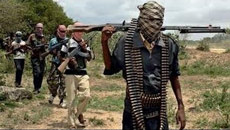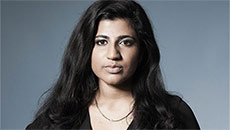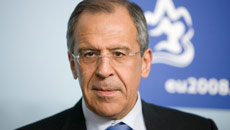The US Monday came full circle as after shunning Narendra Modi for over a decade, President Barack Obama Monday vowed to work closely together with the new Indian prime minister "for years to come".
"We look forward to working closely together with the new government to continue to strengthen and expand the US-India strategic partnership for years to come," the White House said in a message of congratulations from Obama.
As the two leaders "agreed in their call after the election, as the world's two largest democracies, India and the US share a deep bond and commitment to promoting economic opportunity, freedom, and security for our people and around the world", it said.
Obama was quick to acknowledge Modi's "resounding" victory in the Indian election and effectively ended the visa ban on him for his alleged role or inaction during the 2002 Gujarat riots with an invitation to visit Washington.
Secretary of State John Kerry echoed the invitation a couple of days later.
Since then, other US officials including Washington's first Indian-American point person for South Asia Nisha Desai Biswal have voiced US keenness to engage Modi.
"The president stated definitely that we will be welcoming Prime Minister Modi," the US assistant secretary of state for South Central Asia told reporters last week.
"We recognise the Indian electorate has weighed in with a resounding mandate for Prime Minister Modi and we want to work with him for advancing his goals for India as a regional and global player," she said.
Biswal, whose parents migrated from Dahod in Gujarat, said Obama saw the Indian election in a very positive light and looked forward to welcoming Modi in Washington at the earliest opportunity. Kerry too is keen to travel to India.

"The mandate the Indian electorate put forward is one that we strongly support and we stand ready to engage and assist when the new government is ready," she said.
Meanwhile, the US media greeted Modi's assumption of office as from the dawn of a "new era" to "a wildcard" for the Western world with little known about his foreign policy.
The Time called Modi's assumption of office as "ringing in a new era of governance for the world's largest democracy".
The attendance of Pakistan Prime Minister Nawaz Sharif and other South Asian leaders at Monday's swearing in "signals an early effort by Modi to strengthen political and economic ties in the region", it said.
The New York Times also noted that Sharif in an interview with NDTV Monday described the occasion as representing "a great moment and a great opportunity" for Pakistan and India.
"But for Modi's counterparts in Washington, Beijing, and Islamabad, India's new leader is considered a wildcard," said CNN.
"Will he be aggressive, or a dove? What is his foreign policy? Does he have a vision for India's place in the world?" the channel wondered.





